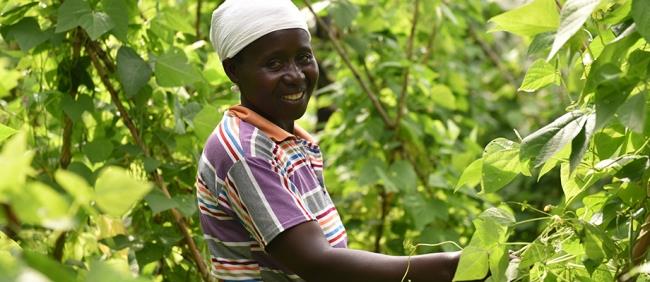A heart for business: women farmers turned entrepreneurs in Rwanda
Christine was one of 600 participants in FAO’s Farmer Field and Life Schools. Each group learned good practices for farming as well as some other important skills, such as financial literacy.

With a heart for business, Christine just needed the capital and a little boost of confidence to turn her vegetable garden into a profitable business. ©FAO/Teopista Mutesi
Christine Mushimirimana is a farmer in the Rubavu District of Rwanda. Like her, the people in this district of Rwanda are predominately smallholder farmers. The soil here is fertile, but most farmers lack access to seeds, fertilizer and good farming practices. Consequently, this area has the highest malnutrition rates in the country.
Initially, Christine grew a few crops such as beans and maize, mostly for her family to eat, but it was not enough. She also supported her family through part-time work on other people’s farms, earning a meagre wage. Two of Christine’s children were forced to drop out of secondary school. Even though they attended public schools, she could not afford school materials.
In 2017, Christine was selected as a participant in FAO’s social protection project. As part of the training, she received a starter-kit with avocado seedlings, vegetable seeds and two goats. In addition, she received training on good agricultural practices for vegetable production and small animal husbandry through a Farmer Field and Life School (FFLS), which also included training on agribusiness, nutrition, gender equality and financial literacy.
With this new information and inputs, Christine grew the seedlings and in the first harvest, she reaped much more than her family could consume. Her attitude towards growing vegetables has changed.
